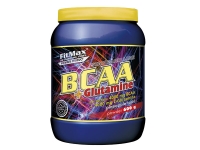When we think of setting up a dietary regime to reach our goals, the first thing we think about is the daily supply of protein.
A sportsperson’s daily protein demand is about twice the normal amount, but in bodybuilding it can be even bigger.
The huge protein supply in bodybuilding is justified. Proteins are the building material of muscle, and a “promoter” of healthy lifestyle. Supplementation is sports is almost a necessity. Many people struggle with eating the right amount of cottage cheese or chicken breast.
From the chemical point of view, proteins are constructed of small building blocks, called amino acids. They are bound together into molecules by peptide bonds. Nearly every amino acid has its own function in the body, has a part in metabolism, is a neurotransmitter, takes part in the production of nitrogen oxide, etc.
DIVISION OF AMINO ACIDS
In sports, the most important division is between the exogenous and endogenous amino acids. The EAA exogenous amino acids are not naturally produced within the body, they need to be supplemented. They play the largest role in metabolism, build muscle mass and affect regeneration.
The endogenous amino acids are produced naturally within the body, a normal person has no need for their supplementation.
The most important amino acids in sports are the three branched amino acids, called BCAA, used for energy production. Without passing through the liver, they go straight into the muscle mass. In nature, their largest quantities appear in milk and corn, but ingesting large quantities thereof is not beneficial for pure muscle mass development.
SOURCES OF PROTEIN
How does one supply satisfactory quantities of BCAA and other endogenous amino acids?
The simplest way is to use a protein powder or amino acids in pill form. Dietary supplements with such ingredients as protein isolate of whey, eggs, caseine, contain a large percentage of BCAA, up to 25 % of the whole amino acid pool.
WHAT’S MORE EFFICIENT – PROTEIN POWDERS OR BCAA PILLS?
This is really a question of budget. The more economical way is to buy protein powder, the better solution, however, are pills.
Protein hydrolysates are different from concentrates and isolates in that they are already enzymatically processed. This means that hydrolysate pills don’t go through the first stage of metabolism, and they go straight into our blood, increasing nitrogen oxide production.
And so, protein hydrolysate is the best way to provide amino acids.
CHOOSING YOUR AMINO ACIDS – TIPS
Notice a few important factors when choosing your amino acids:
1.Quantity of amino acids in one pill
2.Product name
3.Amino acids source
4.Price / quantity relation
1.The most common on the market are 1000 mg – 2300mg per pill. Standard hydrolysates contain 2000 mg per pill and are the best choice, given the size of the pill. Bigger quantity products (bigger than 2000 mg, that is), are very hard to swallow, one often needs to break them in two. A dosage of 2 – 4 pills can be a real challenge.
2.One of many tricks used by supplement manufacturers is using confusing numbers in the product name. For example, “AMINO 5400” can be very confusing. One might think that it contains 5400 mg of amino acids per one pill, but in reality that is the quantity per dosage, 4 pills for example, which amounts to some 1300 mg per pill. Remember, always check the quantity PER PILL.
3.Have you ever checked the source of your amino acids? Many companies manufacture protein in pills, adding just a small quantity of hydrolysate. When reading the label we first find whey isolate, and only after that whey hydrolysate. This is another trick to cut the costs of manufacture and make the product cheaper. If you want to but this kind of supplement, you’re better off buying protein powder – it’s almost the same thing.
4.The quantity versus price is one of the most decisive factors when buying supplements. Do not make that mistake. It often turns out that less pills is more economical than more. Calculate and choose wisely.
Maciej Kolendowicz
Supplementation and dietary specialist

